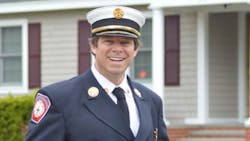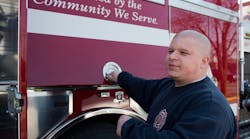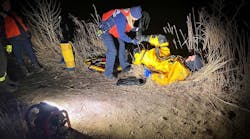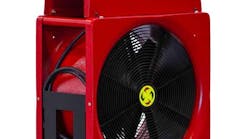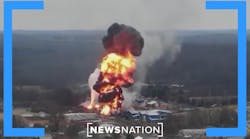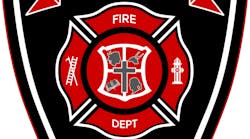Nov. 9 -- SEABROOK, NH -- While a new law allows firefighters to collect workers' compensation for cancer presumed to be work-related, some are finding it difficult getting approved for the coverage.
Seabrook Fire Department Deputy Chief Lawrence "Koko" Perkins is confident his recent testicular cancer diagnosis, for which he has since been treated, is work-related. However, he was frustrated his worker's compensation claim was denied in September because he smoked 12 years ago and was hired before 1996, when a certain physical exam became required by law for firefighters statewide.
Now looking to appeal the decision, Perkins, 50, said the law passed this summer to fund the state's presumptive cancer benefits for firefighters should be improved. He said the law's language requiring firefighters maintain a "tobacco-free life" is too vague, complicating cases like his in which doctors believe tobacco is not the cause.
He said the law also neglects to account for firefighters like himself who still had the necessary physical - a National Fire Protection Association standard 1582 physical - before 1996. He said he took the physical in 1994 and again in the 2000s to show he was cancer-free at those times.
Perkins, a former state representative, believes the law was not passed with the intent of putting the burden of proof on firefighters to show their cancer was work-related. The law was passed this summer after a decades-long push to get firefighters benefits for cancer, to which studies show firefighters are more susceptible than the general public.
"It's kind of shifting the burden," said Perkins. "That's not what the legislation stated. It was a presumption bill. If I end up with this type of cancer, it's automatically work-related."
Perkins said he noticed a lump on his testicle Sept. 2 and thought it was the result of a cycling injury, noting he often rides his bike through difficult terrain and sometimes pops wheelies. His wife told him he should have it checked out, though, and when he went to the hospital that day and learned the lump was a cancerous tumor, a doctor asked if he was ready for surgery that night.
"They asked me if I cared if they removed it," Perkins said. "I'm 50 years old. All it's going to do is get me in trouble at this point."
The cancerous testicle was removed, and tests that followed the procedure have been negative so far, he said.
Perkins said his doctors have ruled out tobacco use as a cause for his testicular cancer, saying he smoked until 12 years ago when he had a heart attack that prompted him to stop. He said he has read studies on how firefighting equipment contains carcinogens and believes he has been, and will continue to be, at risk of getting cancer from wearing that equipment.
Bill McQuillen, president of the Professional Fire Fighters of New Hampshire and a member of the state Workers' Compensation Advisory Council, said he could not comment directly on Perkins' case because of his place on the board. However, he said the law as passed this year was a bill that could have been improved upon but was still a good step in the right direction.
McQuillen said the bill still established a way for firefighters hired before 1996 to pursue workers' compensation. While that path may be different from the one set for those hired after 1996, he said at least it exists, unlike it did beforehand.
McQuillen said the law's language on smoking was placed into the bill at "the 11th hour" in a legislative conference of committee shortly before the governor signed the bill. He said PFFNH did not have enough time to properly vet the new language and believes, in hindsight, the language is vague.
"I understand what they were trying to do, but I think, where they didn't define it, it would be an issue," he said.
Perkins said his surgery was covered by his insurance, but he said he wanted to qualify for workers' compensation so he could be reimbursed for the two weeks of wages lost while he was out from work. He also said having his cancer considered work-related could have allowed him to retire in the near future from a career he now fears will continue to put him at risk of more cancer.
"My largest concern is that I may be put into gear that is causing my cancer," Perkins said. "I've already shown that I'm susceptible."
___ (c)2018 Portsmouth Herald, N.H. Visit Portsmouth Herald, N.H. at www.seacoastonline.com/portsmouthherald Distributed by Tribune Content Agency, LLC.
